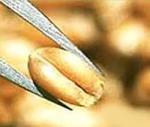Quinoa
the future of this stable grain
Celebrating 2013 as the International Year of Quinoa.
Quinoa plays an important worldwide nutritional role. Plans to feed billions and eradicate hunger are featured during this International Year of Quinoa.
The 7,000 year old grain can be consumed by a number of reductive diet groups such as Celiacs patients, Vegetarians Paleo-eaters.
There is a worldwide benefit from Quinoa's adaptive nature and short growing season, The world watches crops growing in the dry environments of Central Americas and plan for its future. This is of particular note as continuing climate change disrupts growing seasons. The world sees once fertile land now silted over due to endless rains.
The HImalayas, the plains of northern India, the Sahel and Yemen are looked at for future Quinoa crops.
Cooked Quinoa contains 9% protein, iron and fiber called super food because of its high micronutrients. It's high in amino acids, trace minerals and vitamins. Quinoa can be found in the finest dining establishment and kitchens all over the world. The Food and Agriculture Organizations of the United Nations are promoting this traditional or forgotten crop to improve worldwide hunger. The challenges of the modern world point towards Quinoa for the modern world assimilating the knowledge of the ancient world. The easy to grow crop will be a comfortable addition for the small farmer.
President Morales and First Lady of Peru were named Special Ambassadors for the international Year of Quinoa. At a special ceremony sponsored by the Food and Agriculture Organization of the United Nations, the First Lady underlined the important role of women farmers in quinoa production and highlighted quinoa as a "viable and effective option for fighting hunger and malnutrition".
http://www.fao.org/news/story/jp/item/170254/icode/
http://vegetarian.about.com/od/healthnutrition/qt/Quinoa-Nutrition-Facts.htm


